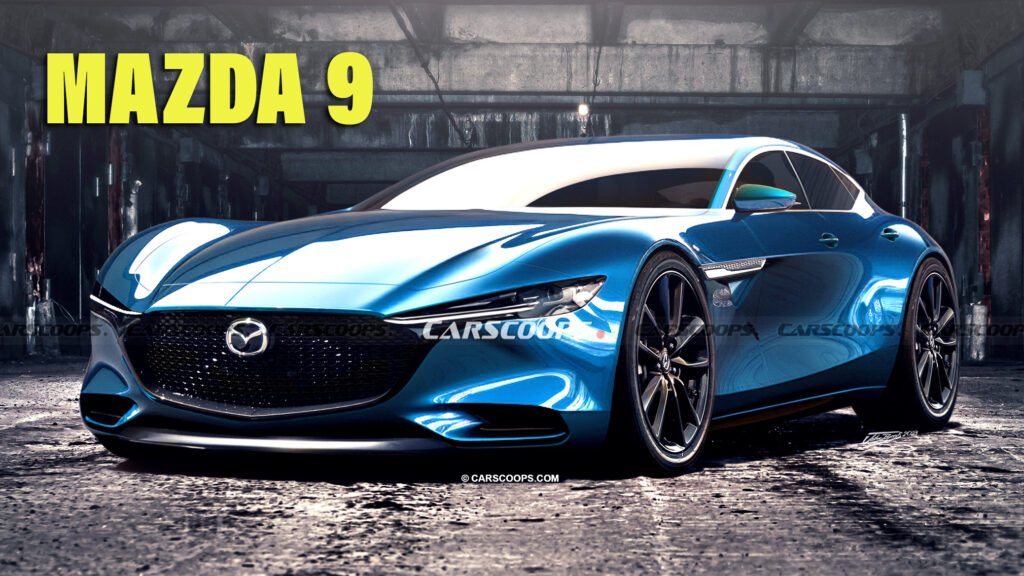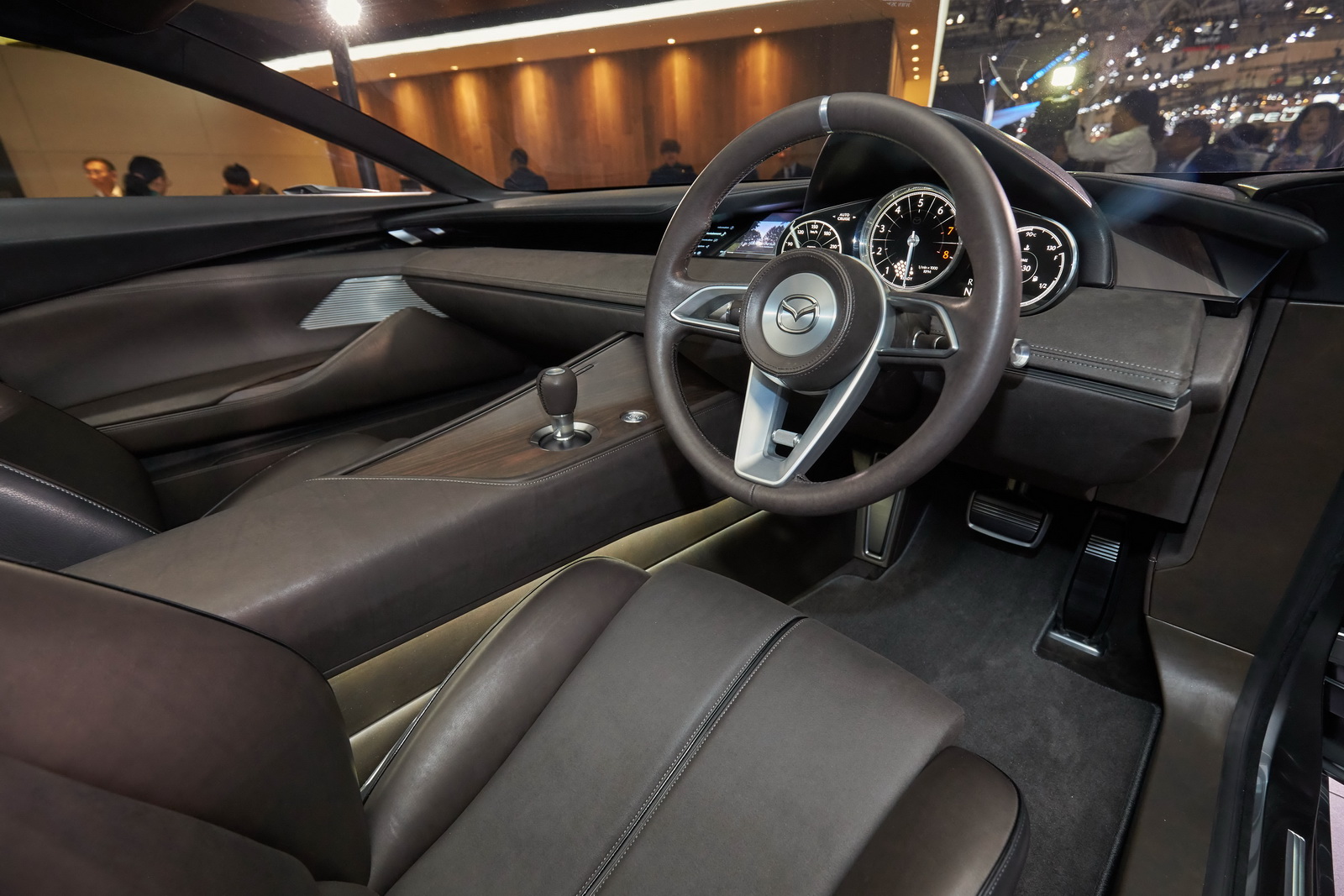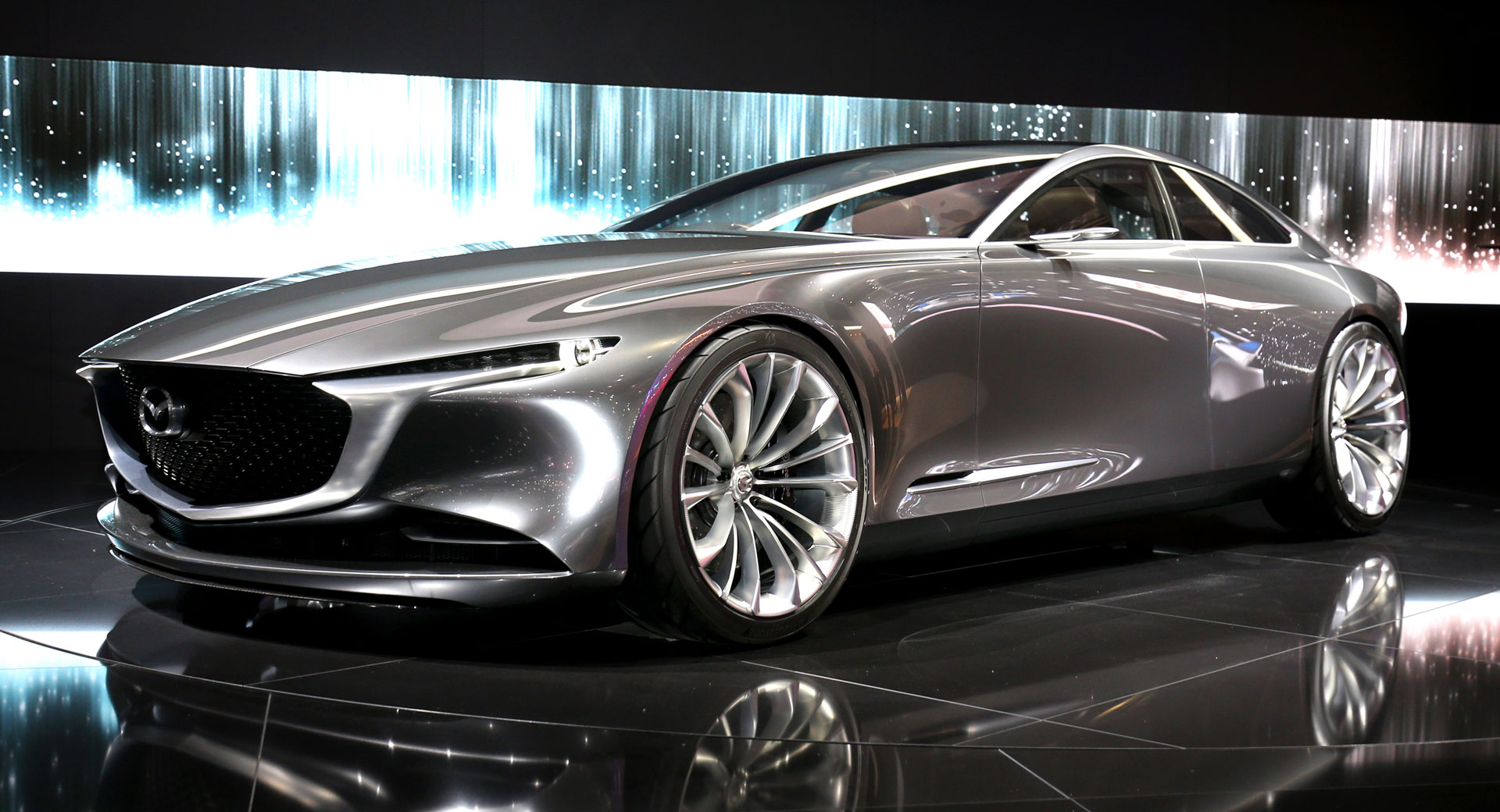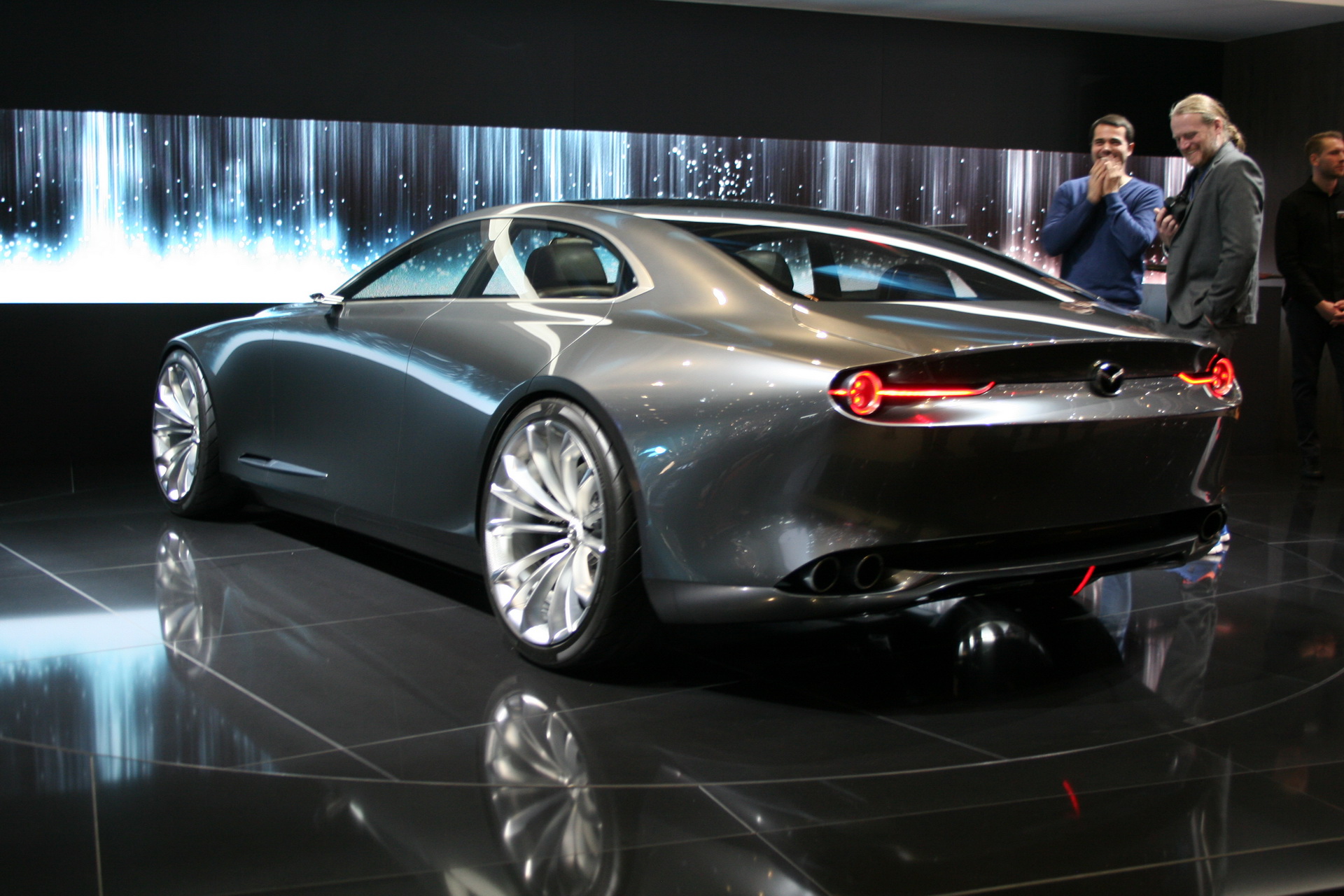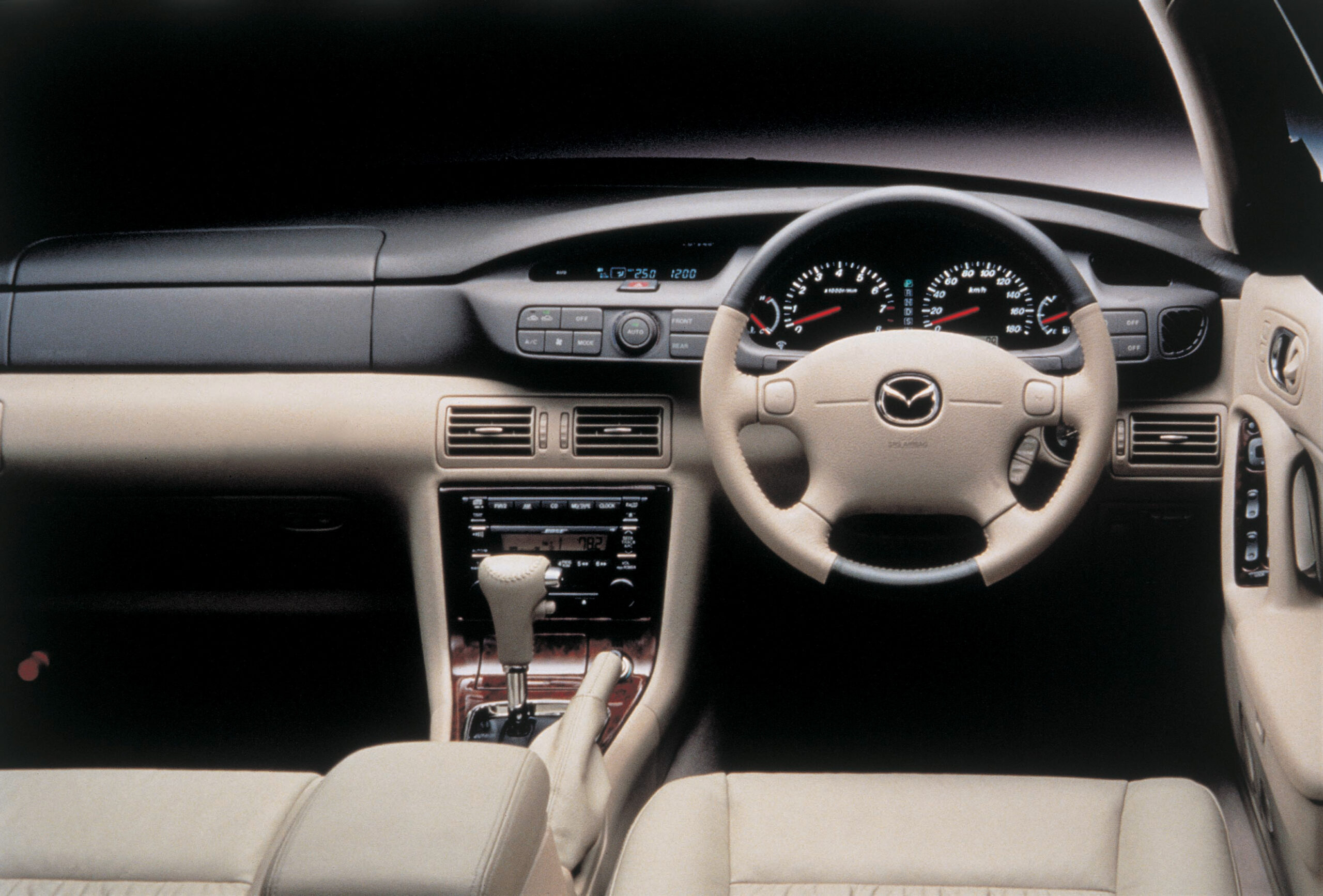This story includes speculative illustrations that are not affiliated with or endorsed by Mazda.
Mazda recently launched its new 2024 CX-90 three-row crossover with a 3.3-litre turbocharged straight six and rear-drive biased platform. However, many of us have imagined how it would perform in something lighter, like a BMW 3-Series-rivalling all-new Mazda6 sedan and wagon.
Well, sadly, that thought can stop there. Execs from Hiroshima have poured cold water over such conjecture, stating that its large rear-drive architecture will only be used on SUVs such as the CX-60 and CX-80 (the narrow body cars for Europe and Asia-Pacific), and the wider CX-70 and CX-90. Oh damn!
Inline dreams aside, what if the Japanese automaker skipped the six and went all-out on a large, GT-inspired four-door coupe? Perhaps call it the ‘Nine’ to catapult Mazda into true luxury contention? Let’s explore this a little further.
Visionary Design
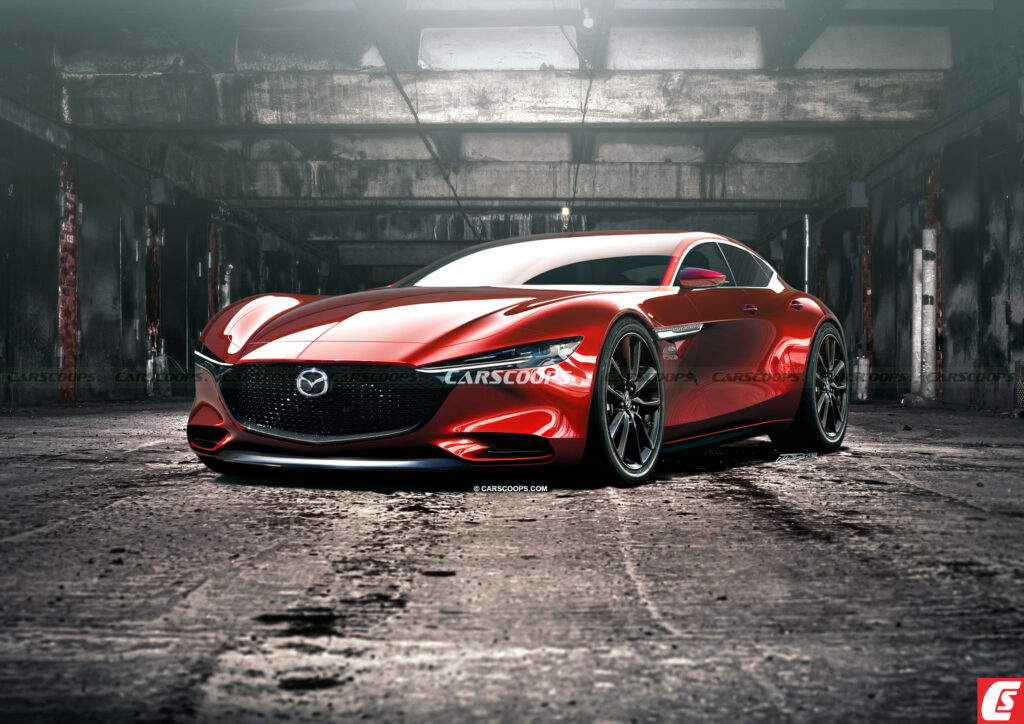
This Mazda9 (or Nine) design study is inspired by Mazda’s 2017 Vision Coupe concept, which embodies powerful proportions and sleek styling. The frontal area features a shark-nosed faux grille intersected by wedge-shaped LED headlamps and slim DRLs. Further up, the central section of the hood sits lower relative to the voluptuous front fenders, making it look ready to pounce.
Viewing it from the side reveals a long dash-to-axle ratio, with a cab rearward stance. Frameless windows and eye-catching chrome trim exude sporting luxury, whilst deeply sculptured sheet metal and pumped rear haunches hint at its powerful potential. Rear styling mimics the Vision concept, with circular taillamps and a profoundly scalloped trunk lid.
A Luxurious Outlook
Mazda Vision Coupe Concept from 2017
Inside, the four-seat cabin would emphasize style and premium craftsmanship with high-quality materials and up-to-the-minute technology. A full-width HUD would employ augmented reality to display essential information on the windscreen alongside an OLED infotainment screen that spans the entire dash to keep front-seat passengers entertained.
We’d expect a full suite of driver assists with Lidar implementation to provide Level 2+ semi-autonomous driving and multiple drive modes to make the driver feel more engaged. Other goodies could include expansive ambient lighting, an electrochromic panoramic sunroof, and special-order trim personalization options.
Potent Performance
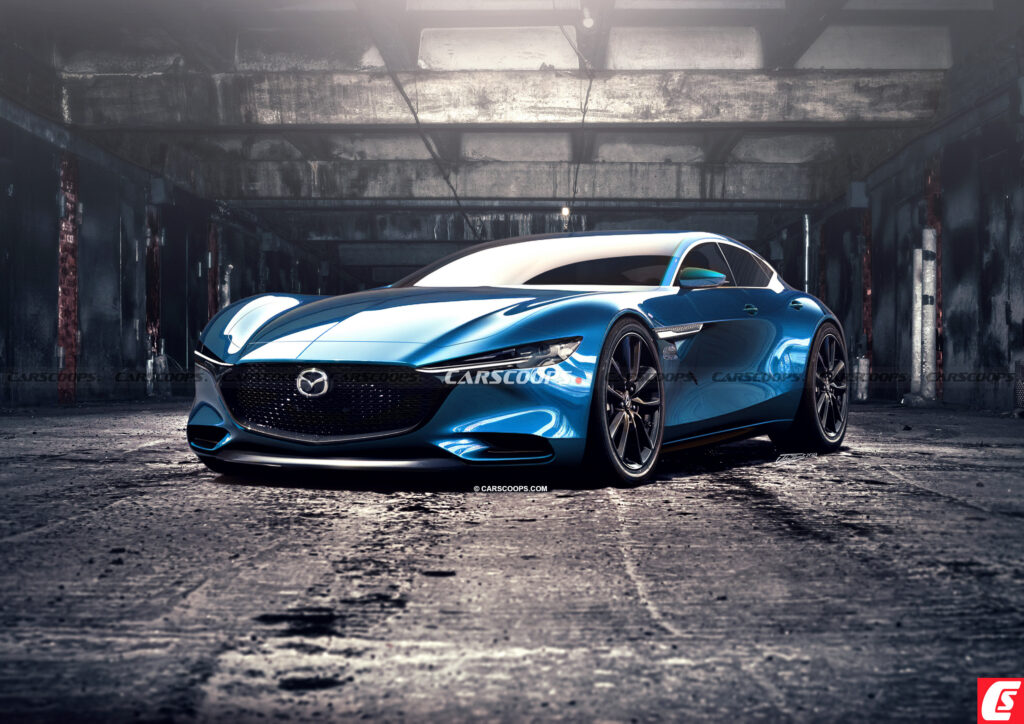
As much as everyone would love to see Mazda’s new turbocharged 3.3-litre inline six under the hood, the reality is that the automaker will embrace varying levels of electrification in the future. From 2025, Mazda will offer its dedicated Skyactiv EV Scalable Architecture and launch five new hybrid cars and five new plug-in hybrids before then.
Hiroshima’s new EV platform has the flexibility to offer many body styles, which could underpin a grand tourer such as the one depicted in this design study. With the company’s ethos towards driver involvement, one can bet that it would sport a rear-biased, dual-motor setup. Mazda hasn’t revealed any specifics on battery capacity or motor outputs (it should be over 400hp at a minimum).
Shooting To the Stars
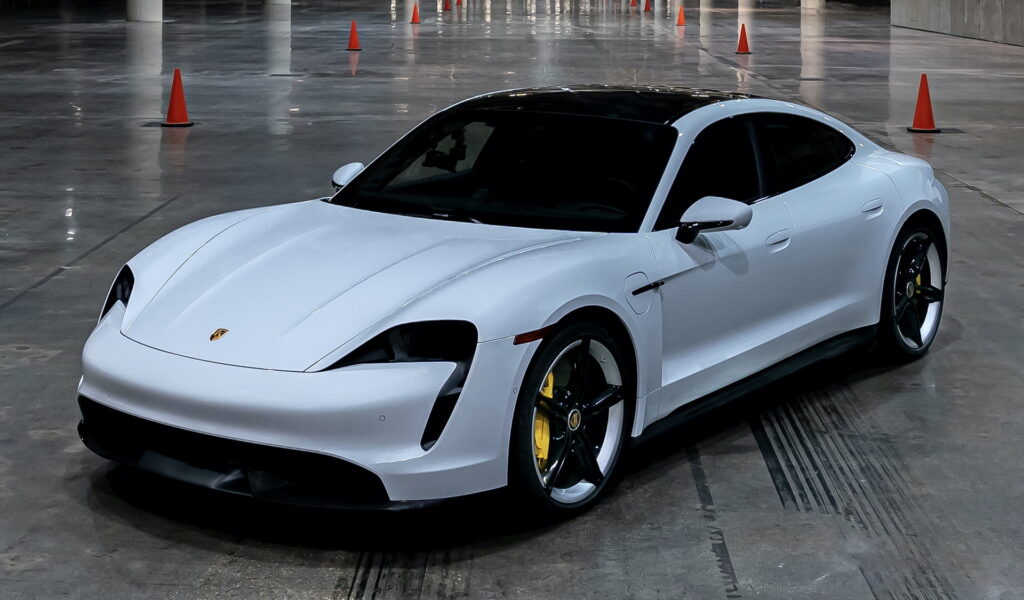
Let’s not kid ourselves; as it stands, Mazda is not a luxury manufacturer. Granted, they had tried before with the proposed (and swiftly cancelled) Amati brand back in 1991, and some of its current product offerings could be considered premium. But they’re not yet in the same league as Audi or BMW.
They could pull it off (with much investment) with something like this design study, aspiring to Audi’s RS7 Sportback, BMW 8-Series Gran Coupe, Mercedes-Benz EQS and AMG GT, Porsche Taycan, Audi RS e-tron GT and upcoming Polestar 5. One can only dream.
Would you like Mazda to go all-out on a halo model like our design proposition? We’d love to hear your views in the comments below.
Mazda’s last executive-sized sedan was the Millenia, also known as the Eunos 800 and Mazda 9, built from 1993 to 2002




